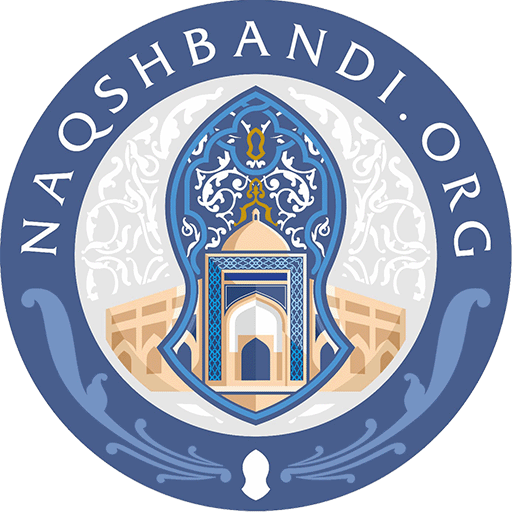Taking Initiation (Bay`ah)
The seeker must follow a perfect Master able to guide him to the way of Allah, Almighty and Exalted, and to illuminate for him that way until he reaches the State of Annihilation. The seeker must give his oath and his promise to his guide, to learn from him how to leave his bad manners and to lift himself to better conduct in order to reach the Perfect Knowledge of Spirituality.
The meaning of initiation and its conditions have been mentioned in the Holy Qur’an, in the Sunnah of the Prophet and in the life of the Companions.
1. In verse 10 of Surat al-Fath, “Verily those who swear allegiance to thee indeed swear allegiance to Allah. The hand of Allah is over their hands. So whoever breaks his oath, breaks it to his own loss; and whoever fulfills the covenant that he has made with Allah, He will surely give him a great reward.” [48:10]
2. In verse 91 of Surat an-Nahl, “And fulfill the Covenant of Allah when you have made it; and break not your oaths after making them firm, while you have made Allah your surety. Certainly, Allah knows what you do.” [16:91]
3. In verse 34 of Surat al-Isra’, “and fulfill the covenant, for the covenant shall be questioned about.” [17:34]
We see the Qur’an encouraging the people to give their oath and to keep their oath to the Prophet (s), who leads them to the presence of Allah, Almighty and Exalted. That initiation was done in the time of the Prophet (s) and after the time of the Prophet (s).
According to the Sunnah of the Prophet (s), the oath was taken from men, as a group, or as individuals; from women, as a group or as individuals, and even from children. Bukhari and Muslim narrate that cUbada ibn as-Samit said, “The Prophet (s) said, ‘Give me your pledge and oath not to associate anything with Allah, not to steal, not to commit adultery, not to kill your children, not to backbite, not to fall into sin; and who keeps his promise, then his reward is from Allah, Almighty and Exalted.’ And then we gave our pledge to the Prophet (s) and our oath.”
The Prophet (s) used to give initiation (baycah) to all people and urged them to take it. Bukhari and Muslim narrated in their books that ‘Abdullah ibn ‘Umar said, “When we pledged to the Prophet (s) to listen and obey, the Prophet (s) used to say, ‘To the limit that you can carry.’”
Initiation of Women
The Prophet (s) gave baya’h to women many many times. It is narrated by Imam A mad in the Musnad that Salma bint Qays said, “I came to the Prophet (s) with many people from the Ansar, and we gave him our bay’ah, our pledge that we would not associate anyone with Allah, we would not steal, we would not commit adultery, we would not kill our children, we would not backbite and we would not disobey. We gave him our bay`ah and we went.”
Initiation of Children
The Prophet (s), according to the books of Nisa’i and Tirmidhi gave initiation to Umayymah bint Ruqiyyah. It was narrated by Tabarani that ‘Izza bint Khayyil took initiation from the Prophet (s) when they were not yet seven. It was also narrated by Tabarani in in an authentic hadith that the Prophet (s) gavebaycahto al-H asan, al-H ussain, cAbdullah ibn cAbbas and cAbdullah ibn Jacfar when they were 7 years of age.
The Companions of the Prophet (s) gavebaycahto thekhalifsof the Prophet (s) after his passing. It is narrated through the books of Sirah of the Sahhaba that the Sahaba gave bay’ah to Abu Bakr as-Siddiq, to cUmar ibn al-Khattab, tocUthman ibn cAffan, to cAli, to Mucawiya, and to all thekhalifswho came later, as they had given it to the Prophet (s).
The Prophet (s) said in a hadith related by Abu Dawud and Ahmad, “Whoever imitates a group of people will be of them.” So the inheritors of the Masters of the Sufi orders, especially the Naqshbandi Sufi Order, inherited the initiation in every century. As it was an obligation in the time of the Prophet, and in the time of the Sahaba and in the time of the Tabicin and Tabic at-Tabicin, and in the times of the Umayyads, Abbasids, Seljukids, and Ottomans, so it is also an obligation to give ourbaycahto a perfect guide, who guides us to the Way of Allah, Almighty and Exalted. And who is a better guide than the Sufi Masters who are inheritors of the Prophet (s) and inheritors of the Divine Presence?
The scholar Abul asan cAli Nadwi wrote in his book Rijal al-Fikr wa-d-Dacwah, page 253, “Abdul Qadir Jilani, the Ghawth of the Sufi Orders, Shaikh Muhiyideen ibn cArabi, and all the Masters of the Naqshbandi Golden Chain, opened the door of initiation as wide as possible, for every individual who has good and true belief, to find something that will be of value to him spiritually, and for everyone to renew hisbaycahwith Allah, Almighty and Exalted. These Sufi Masters of the Naqshbandi Golden Chain and all Sufi orders lifted their followers to a station of Truthfulness, to feel the responsibility of their initiation and to renew their faith.”
Thus we see that it is an important factor in every Sufi Order for one to take baycah with the shaikh, in order to sanctify oneself and to be lifted up to the Divine Presence. These guides are the revivers in every century, to connect our hearts with the heart of the Prophet (s), who in his turn connects our heart to the Divine Presence. These guides are the beacon of the light of the Prophet (s) and the light of the Divine Presence and they are the true examples for all nations to follow.
